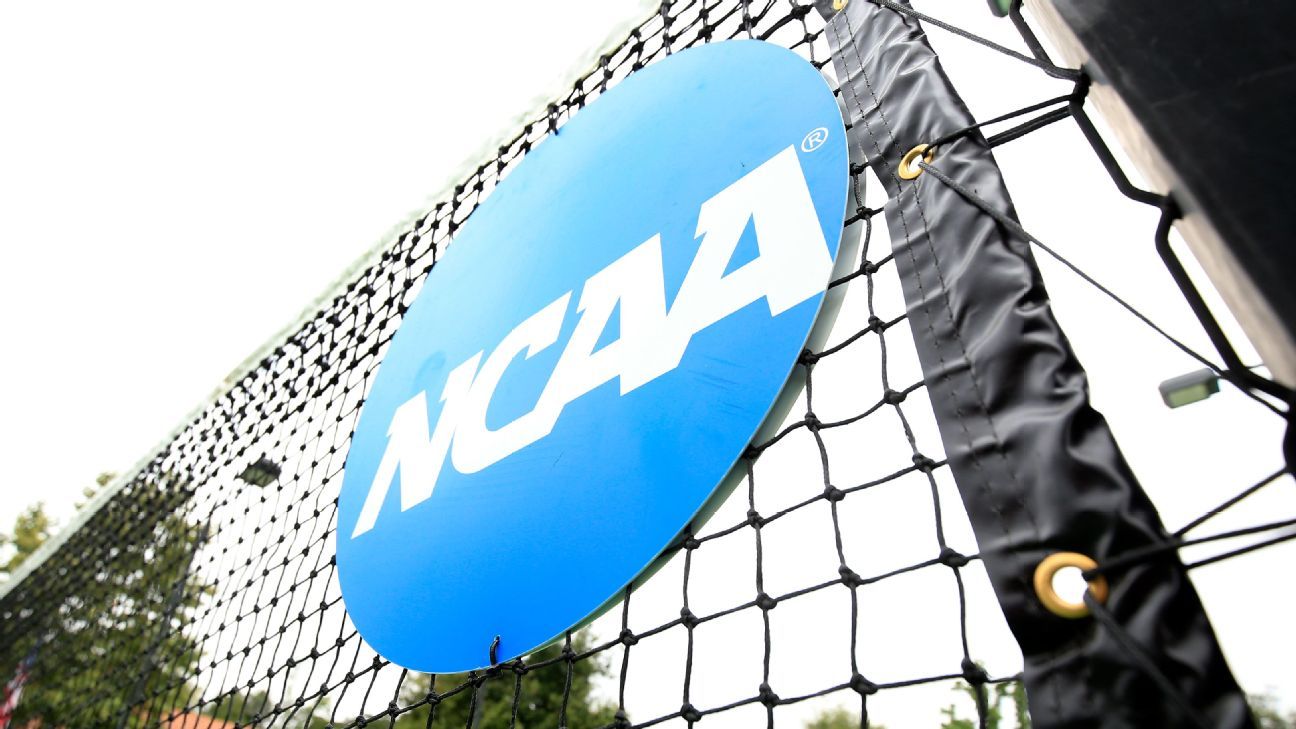
Schools eye rule changes, more NIL involvement
Colleges, in an effort to get more involved in helping athletes make money from endorsement deals, are considering changes to NCAA guidelines.
Dan Murphy, ESPN Staff Writer
College sports leaders are considering making changes to current NCAA guidelines that would allow schools to get significantly more involved in helping athletes make money from endorsement deals.
An NCAA subcommittee in charge of examining the rules that dictate how athletes use their name, image and likeness rights to make money will meet Thursday to discuss several proposed changes, according to meeting notes obtained by ESPN. The notes show potential changes that would give schools the clearance to find deals for athletes, review contracts, help them with preparing taxes, and provide resources such as cameras or graphic designers for athletes to complete their end of a marketing deal.
The proposed changes have not been finalized, and it's not clear if or when any new guidance would be adopted, but the changes would potentially eliminate some of the uncertainty about how much athletic departments can help athletes seen in the first two-plus years of college sports' NIL era.
Allowing staff members to more directly impact how money flows to players could also represent a major step toward reshaping the nature of the relationship between schools and their athletes.
Nebraska athletic director Trev Alberts, who is a member of the committee meeting later this week, said he's in favor of making "aggressive" changes that would help schools support their athletes and regain some control in the NIL marketplace. Alberts said he thinks NCAA members need to be open to change that addresses their current reality without being naive.
"Let's be honest. Some of the stuff we're talking about now, we would have never even had a conversation about two years ago," Alberts told ESPN. "The goalposts keep moving. We keep sliding further and further. Some of the things early on that were impermissible, it's time to rethink those things."
Current NCAA rules prohibit anyone in an athletic department from representing athletes in marketing deals, directly or indirectly, but schools are allowed to provide their athletes with education and some tools for connecting with boosters and business who might want to sign them to an NIL deal. The extent to which each school gets involved in making those connections has been dictated in part by state law as well as by the school's appetite for pushing the limits of the NCAA's loosely defined rules.
The proposed changes would allow schools to:
- Proactively assist in the development/creation of NIL activity.
- Provide services such as tax preparation and contract review.
- Provide access to equipment (such as cameras, podcast studios, etc.) for NIL activity.
- Communicate with school sponsors about NIL opportunities for their athletes, "including securing specific opportunities."
"These are the types of things that people on campus have been clawing to do and venting to us about for the last few years," Schwab said. "We want to be able to support athletes; we need to be able to do more of it."
He said the ability for schools to help athletes fulfill the terms of an NIL deal -- creating graphic designs for an athlete to promote a company on his or her social media channels, for example -- is perhaps the most impactful potential change.
"We all know how college athletics works. If schools are allowed to do something, and it provides value to their athletes, then it's going to be used in recruiting," Schwab said. "That's going to lead to schools investing quickly and heavily in these support services."
The timeline for these proposals to be implemented would be dictated by how aggressive the subcommittee working on these ideas decides it wants to be. If schools -- or third parties hired by the schools -- are going to be allowed to secure deals for their athletes, that might require rewriting rules in a monthslong legislative process. More incremental changes in how much a school can do could be issued as "updated guidance" to existing rules from the subcommittee, in which case schools could start taking action as soon as the guidance was published.
"I'm hoping we're aggressive," Alberts said. "I'm a proponent of radically thinking differently about institutional involvement here."
Alberts said universities right now take on the bulk of reputational and, in his opinion, legal risk for an NIL market that is at least ostensibly run outside of their control by booster collectives and other third-party groups. He said increasing the schools' involvement will help them better manage that risk. He said it also would allow the NCAA to make enforceable rules without having to be "naive" about the reality of how much athletic departments are communicating with those collectives and third parties.
Alberts said ideally the NCAA could maintain a model where a scholarship was viewed as fair compensation for its athletes, "but that's not reality." He said he thinks continuing to adapt current NIL rules provides a way for schools to continue sharing more with athletes.
"The dollars that have flowed into our space are real," Alberts said. "Coaching salaries, AD salaries, let's be honest about where we are today. I'm not opposed to student-athletes participating in the sharing of ultimately what they're helping to generate. ... Change is hard, but ... I'd rather get busy changing than slowly dying a death by 1,000 cuts."
